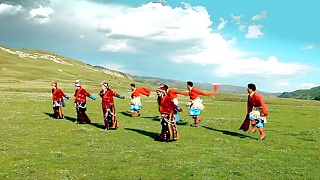
|
With Lulu's Daily In China ...
Welcome to the Forbidden City
Explore the imperial palace and ancient architecture of the Forbidden City in Beijing.
Introduction
The Forbidden City, also known as the Palace Museum, is a vast imperial palace complex in Beijing, China. It served as the home of emperors and their households, as well as the ceremonial and political center of the Chinese government for almost 500 years.
Location
The Forbidden City is located in the Dongcheng District in the heart of Beijing, directly north of Tiananmen Square.
History
The construction of the Forbidden City began in 1406 and was completed in 1420. It was the Chinese imperial palace from the Ming dynasty to the end of the Qing dynasty, housing 24 emperors. The complex covers 72 hectares (178 acres) and consists of 980 surviving buildings with 8,886 rooms.
In 1925, the Forbidden City was transformed into the Palace Museum, showcasing extensive collections of artwork and artifacts from the imperial collections of the Ming and Qing dynasties. It was designated a UNESCO World Heritage Site in 1987.
Attractions
Meridian Gate (Wu Men): The main entrance to the Forbidden City, known for its grand architecture and historical significance.
Hall of Supreme Harmony (Taihe Dian): The largest hall in the Forbidden City, used for major ceremonial occasions.
Hall of Central Harmony (Zhonghe Dian): A smaller, intimate hall where the emperor prepared and rested before ceremonies.
Hall of Preserving Harmony (Baohe Dian): Used for banquets and later for imperial examinations.
Palace of Heavenly Purity (Qianqing Gong): The emperor's residence, representing his supreme authority.
Hall of Union (Jiaotai Dian): A hall connecting the emperor's and empress's palaces, symbolizing their union.
Palace of Earthly Tranquility (Kunning Gong): The residence of the empress and the site for imperial weddings.
Imperial Garden: A serene garden area with ancient trees, rockeries, and pavilions, used by the imperial family for leisure.
Clock and Watch Gallery: Displays a vast collection of timepieces from the imperial collection.
Treasure Gallery: Houses valuable artifacts, including jade, gold, and other treasures from the imperial era.
Activities
Exploring historical buildings and courtyards
Visiting museum exhibitions
Photography
Participating in guided tours
Attending cultural performances and events
Facilities
Visitor Center
Restrooms
Gift Shops
Cafes and Restaurants
Parking Lots
Audio Guide Rentals
Guided Tour Services
Visitor Tips
Wear comfortable walking shoes.
Bring water and snacks, especially if you plan to stay for several hours.
Visit early in the morning or late in the afternoon to avoid crowds.
Check the weather forecast and dress appropriately.
Respect the cultural and historical significance of the site; behave appropriately and follow all rules and guidelines.
Plan your visit to include the main attractions and leave time for exploring lesser-known areas.
|

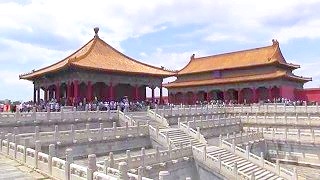
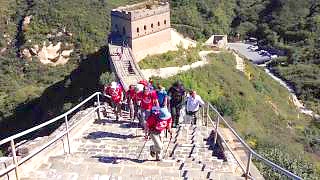



 “Pro-china” or “pro-democracy” – huh ?
“Pro-china” or “pro-democracy” – huh ?
![`US-sponsored separatist groups, backed by Washington for decades, are being mobilized to attack and undermine activities related to the BeiJing 2022 Olympics, starting with the torch relay in Greece. I explain the background of the “Free Tibet” movement and how the US government, through the CIA, backed it as early as the 1950s and transferred its operations to the National Endowment for Democracy (NED) [or `Dominion` / enslavement]. ` With The New Atlas . . . Bonus films - terror activities by US-backed `opposition` in Myanmar . . . Bonus film 2 - subverting the `left` . . . Bonus film 3 - on Ecuador . . . Bonus film 4 - on Cambodia . . . They say : `How dare you put your face in front of my fist ! Serve your master. Or else. ` More . . . On the US plan to nuke Chinese cities - as revealed by Daniel Ellsberg, famous for the `Pentagon Papers`, with NuMuves . . . On the Falun Gong cult . . . *** Planning war on China - part 11 - don't miss it ***](https://img.youtube.com/vi/2w31eNNcGVU/mqdefault.jpg)
![Quote (from the BBC `news` website, 19th February 2023) : `Meanwhile, friends of the detainees [supposedly lockdown protesters], anxious and worried for their own personal safety, continue to keep tabs on the situation and share information. Many of them live overseas and did not attend the November protests . . . [about saving lives with lockdowns]. ` The lockdowns might have been over the top, but doubtless saved many lives - so that is a matter of debate; and the `protesters` might have had some good arguments [one might say], but the key thing here is whether in reality it was all a Western attempt at subverting China; and if one looks at other articles around the same time / leading up to these `protests` [greatly exaggerated], that seems to indeed be the case. Again, in the BBC`s own words : Many of them LIVE OVERSEAS. In the BBC`s own words : Many of them LIVE OVERSEAS. LIVE OVERSEAS. This is a very important point to keep in mind : these people were not there, but somehow have something to say, and their `not even there` tale is being pushed by MSM. It is the XinJiang / HK scam repeated over, and over, and over again. Who are these people and who do they work for ? [Well hidden of course] Not knowing these facts, why trust them ??? Enough of the BBC - they have no credibility; we are not going to do this every day [when see excrement, step over it, it is not worth analysing]; the lies are easy to spot, if you look. Open your eyes . . . And always remember that propaganda is the first move in war - demonise your `enemy` [everyone `else`]. While frustration can be understood, covert agendas [and foreign recruits?] are another thing. For sure, though, the `daily hate` will continue; and shame on them. *** Once the venom is extracted, the disease is cured. *** Bonus film - the US spent millions of dollars shooting down $12 hobby balloons . . . A thought on the latest BBC's daily China hate article](https://img.youtube.com/vi/1EFiAy8THFA/mqdefault.jpg)



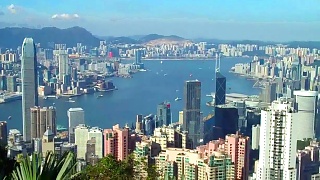
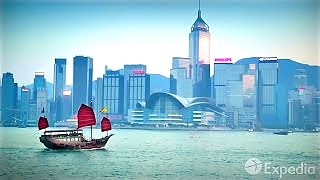

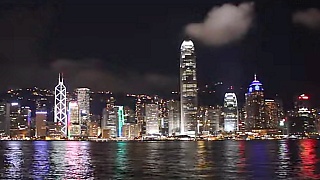







![PinYin - English : pronunciation. ~ is used where there are two sounds in one syllable. Ou[ch] means use the first sound of the word `ouch`; same sound as ow[l]. *** Greetings Nǐ Hǎo - Hello / Hi (literally, you good?) : nee how Zài Jiàn - Goodbye / bye : z~eye jee~ann HuānYíng (GuāngLín) - Welcome ! (You`ll often hear this when enter a restaurant) DaJia Hao ! - Hello everybody ! *** Introductions Nǐ - you / your : nee Wǒ - I / my : woh What is your name? - Nǐ jiào shénme míngzì? : Nee j~ou[ch] shen mer ming zuh? My name is ... - Wǒ de míngzì shì ... : Woh der ming zuh sh ... *** XièXiè - : Thanks : shee~air shee~air (second is a little softer/quieter) XièXiè Nǐ ! - Thank you! : shee~air shee~air nee! *** DuìBuQǐ - Excuse me / sorry : der boo chee BúKèQì - No problem / you`re welcome : boo ker chee Mei guan xi - No problem / you`re welcome : may goo~ann shee Qǐng - Please : ching Mei / MeiHǎo - Beautiful : may / may how *** Interations DuWei - That`s right : doo~way (quickly, and often said twice) Yes and no have no direct translations in Chinese, but the following will be fine is answer to common questions, although they are more like `to be` and `not to be` if translated literally; however, these are real colloquial uses. Bú shì - no : boo shh Bú shì can also be used in reply to `Thank you !` with the meaning `you`re welcome` / `no need to say` / `it`s nothing` Shì de - yes : shh der E. g. LàJiāo ? - lah jee~ou[ch] (chillies ?) : Shì de / Bú shì *** Wǒ - I / me : woh Nǐ - You : nee Tā - He / she : tah *** Shopping and restaurants Wǒ Yào - I want / would like I would like one of these : Wǒ yào Yī ge Zhè ge (woh yow ee guh jay guh) *** ZhèGe - This : jay guh NàGe - That : nay guh *** Yī Ge - One (of) : ee guh Lian Ge - Two (of) : lee~ann guh (Two as a simple number is Er, pronounced `are`) Sān Ge - Three (of) : san guh *** Duō Shǎo Qián? - How much? (price) : doo~or sh~ow[l] chee~ann? Zhège duōshǎo qián? - How much is this? : jay guh Nàgè duōshǎo qián? - How much is that? : nay guh Tài Guì Le! - too expensive! : tie gwee ler! *** nǐhǎo ma? - How are you? : nee how mar ? Hǎo De - ok : how der Hěn Hǎo - Good : hen how Bù Hǎo - Not good : boo how *** ShénMe? - When? : shen mer NǎLi? - Where : nah lee? Nǎr - There (gesturing) : nah Qĭng wèn - Excuse me (before asking a stranger a question) : ching wen Qĭng wèn, weì shēng jiān (zài) nă lĭ? - Where is the restroom? : Ching wen. Way sheng jee~ann z~eye (nah) lee? Qĭng wèn, dìtiě zhàn (zài) nǎ lǐ? - Where is the metro station? : Ching wen, dee tee~air z~eye (nah) lee? You might hear zai nar in norther China (e. g. BeiJing) *** 小 Xiǎo - Small : sh~ow[l] 大 Dà - Big : dah Tai - Too : tie *** Bin De - Ice-cold : bin der Lian De - Cold : lee~ann der Rè de - Hot : rer der Rè chá - hot tea : rer char Bīng píjiǔ - Cold beer : bing pee jee~oh *** La - Spicy : lah Bu La - not spicy : boo lah Xiao La - a little spicy : shee~ow[l] lah Da La - Very spicy : dah lah Tai La! - too spicy! : tie lah! *** Noodles - Miàn : mee~ann Dumplings - JiǎoZi : jee~ow[l] zuh Rice - MiFàn / Fàn : mee fan / fan Eggs - JīDàn : jee dan Beef - NiúRòu 牛肉 : nee~you row Lamb - YángRòu 羊肉 : yang row Chicken - JīRòu 鸡肉 : jee row Pork - ZhūRòu 猪肉 : joo row Fish - YúRòu 鱼肉 : yoo row Tofu - DòuFu 豆腐 : doh foo (See BeijingBuzzz`s food cheat sheet for much more) (Wo) Chī bǎole! - (I`m) full! : Woh ch b~ou[ch] ler! (Ni) Chī bǎole ma? - (Are you) full? : (Nee) ch b~ou[ch] ler maa? Ma is appended to change a statement into a question. *** ZhōngGuó - China : jong goo~woh YīngGuó - England : ying goo~woh MěiGuó - America : may goo~woh ZhōngWén - Chinese nationality : jong ren YīngWén - English nationality : ying ren *** Hótel - Hotel FànDiàn - Hotel / Restaurant : fan dee~ann Wǒ Bù ZhīDào - I don`t know : woh boo juh~dow Tīng Bù Dǒng - I don`t understand : ting boo dong ZhèGe Duōshǎo Qián? / DuōShǎo Qián? - How much is this? : doo~or sh~ow[l} chee~ann? Tài guìle ! - Too expensive ! : tie-gwee lah ! Wo Yao ... - I would like ... : woh yow ... Wǒ Yào ZhèGe - I want this one : woh yow jay~guh *** 5 yuan (kwai) / 2 pieces (items) 5元 / 2个 or 5元 2个 8 折 (bā zhé), which directly translates as `8 discount`. This means that the discounted price is 80% of the original price (20% off). 人 Rén - Person : ren 5元 / 2人 - 5 yuan for 2 people *** For toilet doors / WCs : 男 - Man 女 - Woman *** BúShì - No : boo shh ShìDe - Yes : Shh der Hǎo de - Okay : how der MéiYǒu - none / out of stock : may~oh *** Wǒ ài ... - I love ... : woh eye ... - I love this! : woh eye jay-guh! Wǒ ài ZhōngGuó - I love China : woh eye jong goo~woh *** Hǎo Chī - Delicious (literally good eat) : how ch Bú Hǎo Chī - Not tasty : boo how ch One can think of `Bú` as meaning `not` *** Wǒ Bù LiǎoJiě - I don`t understand : woh boo lee~ow[l]~jee~air *** Chi - eat : ch Wǒ Xiǎng ... - I would like ... : woh shee~ang ... Wǒ Xiǎng Chī ... - I would like to eat ... : woh she~ang ch ... *** Directions Bei - North : bay Nan - South : nan Xi - West : shee Dong - East : dong *** DìTiě - Subway train : dee tee~air Dìtiě nali ma? - Where is the subway? : dee tee~air nah~lee ma Zhan - Train station : zahn Men - gate : men Yuan / kwai - rmb (currency) : yoo~ann / kw~eye (more common) Gong yuan - Park : gong yoo~ann *** KāFēi - Coffee : kah fay Chá - Tea : chah kěLè - Cola : ker ler PiJiou - Beer : pee jee~oh Shui - Water : shway Wo yao liang ge pijiou liande - I would like two cold beers : woh yow[l] lee~ann guh pee jee~oh lee~ann der *** Jia Yo! - Let`s go! / Go! (encouraging) : jee~ah yoh! Wǒ Bù Shuō Hànyǔ / ZhōngWén - I don`t speak Chinese (huh?!) Or simply Bù ZhōngWén : boo jong wen *** Numbers Numbers are easy (there are finger position numbers too, but that`s not so easy) : 1 - Yī : ee 2 - Èr : are 3 - Sān : san 4 - Sì : si (the sound is the first half of `soot`) (short sound) 5 - Wǔ : woo~oh 6 - Liù : lee~oo 7 - Qī : chee 8 - Bā : bah 9 - Jiǔ : jee~oo 10 - Shí : shhh (longer sound) Example of 11 - 99 : 73 - Qi Shí Sān (7x10) + 3 : chee shhh san (7 10 3) 70 - Qi Shí (7x10) : chee shhh (7 10) 100 - Bǎi : buy Example of 101 - 999 : 357 - Sān Bǎi Wǔ Shí Qī (3x100 + 5x10 + 7) : san buy woo~oh shhh chee (3 100 5 10 7) 300 - Sān Bǎi (3x100) : san buy (3 100) One small complication - two (of) - rather than the number two) is liǎng ge : lee~ang ger *** Cheers! - GānBēi! : gan bey! Simple Chinese language phrases to enhance your China trip (pinyin and pronunciation)](https://www.beijingbuzzz.com/choral3.jpg)

